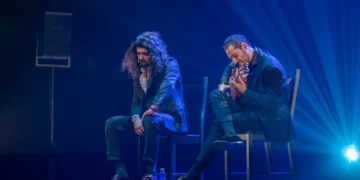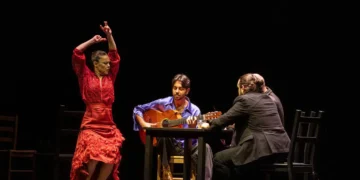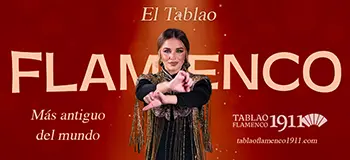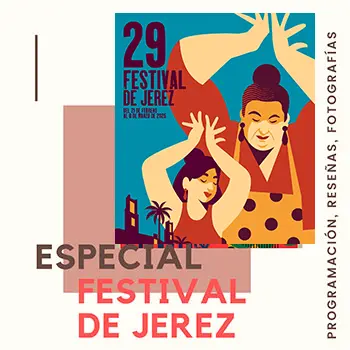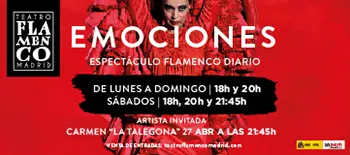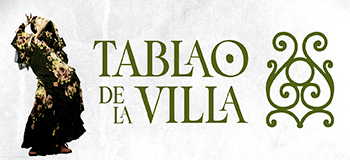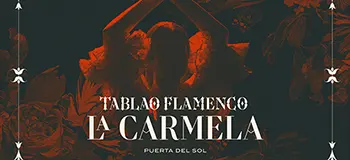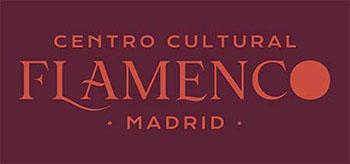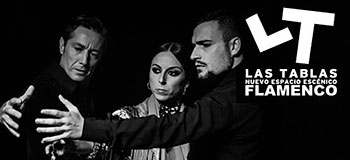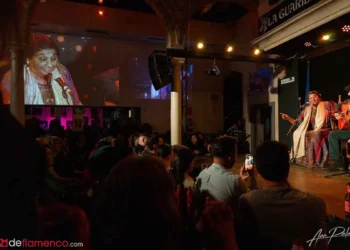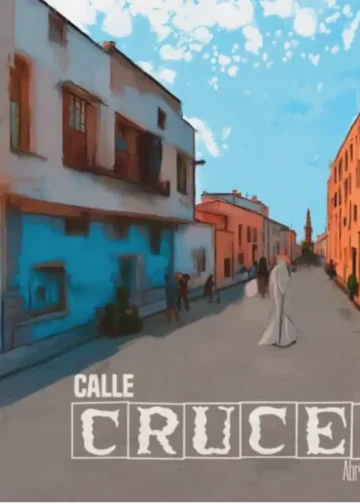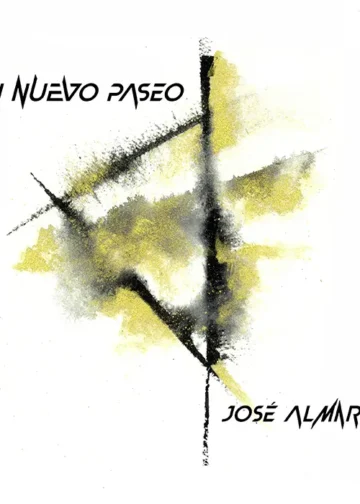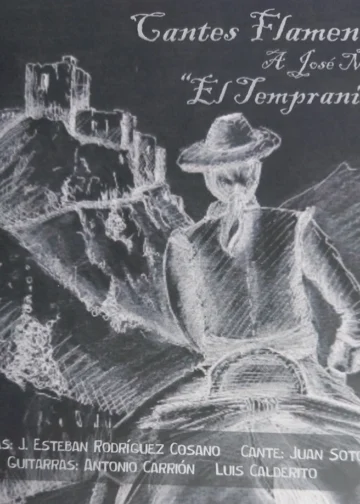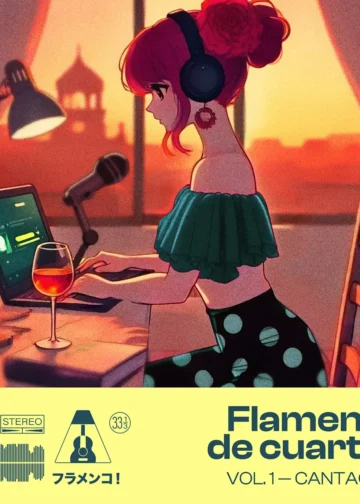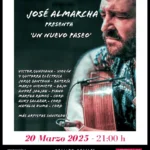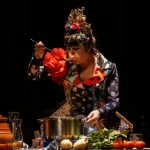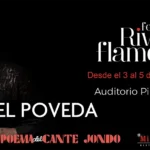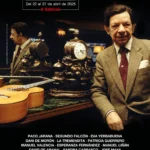|
LA MÚSICA DE LOS ESPEJOS |
||||||||
|
Special SUMA FLAMENCA, all the information WORDS AND MUSIC The scaled-down version of “La Música de los Espejos”, is one of the most attractive offerings of the Festival Suma Flamenca of Madrid’s autonomous community, not only because of the interest it generates combining poetry and music, but also because of the venue in which it is presented. Scaled-down in physical dimension that is, compared to other years, but not in interest or intensity. And the weather cooperated. El Olivar de Castillejo, as we’ve said on other occasions, is a true oasis of peace and tranquillity in the heart of Madrid’s financial district. It’s actually a century-old olive grove by the house of Menéndez Pidal. In actual fact, the grove is divided into three parts, the Casa de Menéndez Pidal on the northeast corner, and the Olivar de Castillejo, which is made up of two fincas that belong to the Fundación Olivar de Castillejo and the Castillejo family respectively. The first night Miguel Mora exercised his profession of journalist, that is, he didn’t come to read a text, but to highlight the artists who were on stage. José Mercé and Moraíto. Manuel Moreno Junquera, Moraíto, got straight into a siguiriya solo. It was his tribute to Parrilla de Jerez who passed away just days ago. In fact, the tribute was on everyone’s behalf. And Miguel Mora, the journalist and emcee, “delved into the essence of humanity” in the words of José María Velázaquez-Gaztelu. Mora got into the details of Jerez, the Santiago neighborhood, including the family ties of its flamenco artists, and we learned that Moraíto is the great-nephew of Mercé…believe it or not. Mora focused on aspects of Jerez flamenco, and both Mercé and Moraíto chimed in or related their own personal experiences, full of anecdotes, the way flamenco is supposed to be.
And amidst this interactive process set up by Miguel Mora, the Jerez musicians interpreted soleá, siguiriya, alegrías, bulerías and martinete. Mercé was less over the top than on other occasions, and even dared to vary his repertoire. Although there was a nip in the air, the performance seemed to end all too soon. The following night was a bit milder, although there was a smaller audience for some reason, which was a shame, because it was very interesting. The director of the series presented Antonio Gala as someone who “has lived flamenco with the unabashed emotion of someone who has been moved to the core by this music”. Esperanza Fernández was wearing another of her magnificent shawls, and Antonio Gala, standing, opened the night admitting: “I came here from my deathbed because you are there and I want you to see me die”. Now that’s what I call good ol’ boy optimism, anything else is silliness.
But in fact, Gala was superb with his poetry, of course, but also his ideas: “dying doesn’t matter, it’s how you die, between suffering and joy”…”I don’t know whether cante is a means of expression, or a means of knowledge”…”Cante is a living well-spring of weeping and pleasure”… Those are just some of the phrases with which the poet moved audience and artists. Gala went on to speak of Seville, Esperanza sang soleá de Triana and after another beautiful recitation, she sang siguiriyas. The the poet spoke of Tartessos, and the singer did fandangos de Huelva. To end, Gala remembered Cádiz and Esperanza interpreted bulerías, beginning with styles from Cádiz, and ending with Lebrija. And that’s how it was, between the stabbing soulful observations of Antonio Gala, and the flamenco pull of Esperanza Fernández, the whole night went by in a flash, closing out “La Música de los Espejos” in an ideal setting for the purpose. We hope the series returns for the next edition of Suma. Videos:
|








